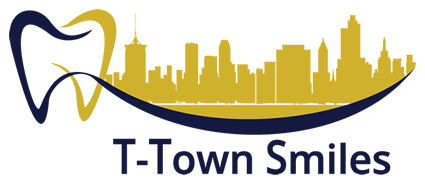 Most people understand how important it is to do things like regularly brush and floss in order to ensure the longevity of their teeth. However, many people do not realize how much damage they could be doing to their teeth while they sleep, and never consider what they should do to prevent this.
Most people understand how important it is to do things like regularly brush and floss in order to ensure the longevity of their teeth. However, many people do not realize how much damage they could be doing to their teeth while they sleep, and never consider what they should do to prevent this.
Are You Hurting Your Teeth in Your Sleep?
When you sleep, you may very well be clenching or grinding your teeth. You might think that this is at most a harmless tic that annoys those around you. However, the reality is that this habit-called bruxism- could end up doing severe damage to your teeth. If bruxism persists long enough, or is severe enough, the outcome could include frequent headaches, uneven and accelerated tooth wear, and even cracks or breaks in the teeth.
What’s more, you may not even know that you suffer from bruxism. If you don’t have someone around you when you sleep, you should have your teeth inspected by a dental professional to check for signs of bruxism. Understanding that you have the condition is an important step in treating it.
What Can You Do?
Many people wear a special mouth guard when they sleep. This guard will prevent the teeth from grinding against each other and help manage the symptoms of bruxism.
Other things you can consider include modifying your diet. Eating or drinking caffeine can contribute to bruxism, so consider limiting caffeine from the afternoon on, or even eliminating it from your diet altogether.
Consider increasing the amount of exercise you get. Bruxism can be reduced when your body is less stressed, and exercise is an excellent way of doing this. Other options include a massage or a warm bath in the evenings.
If you think you have bruxism, please contact us. It is important to address it right away, and we can help.
